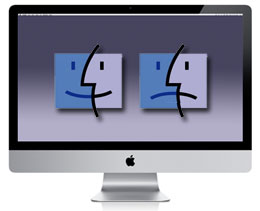 On Monday, Novell will demonstrate new technology that will allow Microsoft Xbox 360 games to be translated into iPhone apps. It also has the capability to be used to create Android games, potentially taking some Xbox games to the mobile masses.
On Monday, Novell will demonstrate new technology that will allow Microsoft Xbox 360 games to be translated into iPhone apps. It also has the capability to be used to create Android games, potentially taking some Xbox games to the mobile masses.
Novell, a Microsoft frenemy, is making it possible for you to play Xbox games on other devices now, while Microsoft, which created the platform, will leave you waiting for Windows Phone 7 handsets, due late this year. For whatever reason, Microsoft has chosen to be less than aggressive in supporting two extremely popular smartphone platforms despite obvious consumer demand.
It is worth noting that Microsoft has partnered with Nokia to port Silverlight, a .NET technology, to Symbian phones. But there has been no word about porting Xbox games to Symbian. Thankfully, the Mono team has taken up the slack where Microsoft decides it isn’t going to play.
The iPhone app that Novell created is an open source derivative of an Indiana Jones games that Microsoft is showing off running on Windows, Windows Phone and Xbox. The game is built using Microsoft’s XNA framework, which is based upon its .NET Framework.
Microsoft’s Windows Phone 7 will run XNA 4.0 games, enabling developers of those games to reuse their investment and programming skills for Windows Phone handsets.
Novell is supporting XNA in its MonoTouch technology, which enables developers to translate .NET applications into native code on the iPhone. It has also done something similar for Android, but that solution is in its early stages of development (rumor is Microsoft may be porting Silverlight). Who wants to wager that Novell will bring Xbox games to Android before Microsoft finishes Windows Phone 7?
Interestingly, Microsoft supports the Mono effort. I can vouch that it has a strong relationship with the Mono team, and it views Mono as an insurance policy to protect customers’ .NET and Silverlight investments. Does Novell benefit from that arrangement? Sure. It’s like Microsoft’s pilot fish; it gets the business that Microsoft doesn’t want.
However, Microsoft is losing developer mind share as more and more apps are created specifically for Android and iPhone. Will a broad library of indy Xbox games be enough to differentiate Windows Phone from the rest of the pack? That remains to be seen – we’re not talking Halo.
 My new 21.5” iMac arrived on Friday. I spent the weekend transferring files from my old machine and installing the applications that I wanted. The experience was overwhelmingly positive, but it wasn’t as seamless as it could have been.
My new 21.5” iMac arrived on Friday. I spent the weekend transferring files from my old machine and installing the applications that I wanted. The experience was overwhelmingly positive, but it wasn’t as seamless as it could have been.
 On Monday, Novell will demonstrate new technology that will allow Microsoft Xbox 360 games to be translated into iPhone apps. It also has the capability to be used to create Android games, potentially taking some Xbox games to the mobile masses.
On Monday, Novell will demonstrate new technology that will allow Microsoft Xbox 360 games to be translated into iPhone apps. It also has the capability to be used to create Android games, potentially taking some Xbox games to the mobile masses. Cloud services like Facebook and Gmail might be “free,” but they carry an immense social cost, threatening the privacy and freedom of people who are too willing to trade it away for a perceived convenience, according to Eben Moglen, a Columbia University law professor and founder of the Software Freedom Law Center.
Cloud services like Facebook and Gmail might be “free,” but they carry an immense social cost, threatening the privacy and freedom of people who are too willing to trade it away for a perceived convenience, according to Eben Moglen, a Columbia University law professor and founder of the Software Freedom Law Center. An analyst with Needham & Company has projected that Apple will sell 2 million iPads this year with an additional 6M being sold in 2011. The sales will come at the expense of Apple’s iPod Touch, according to reports today.
An analyst with Needham & Company has projected that Apple will sell 2 million iPads this year with an additional 6M being sold in 2011. The sales will come at the expense of Apple’s iPod Touch, according to reports today.